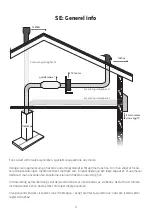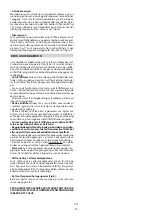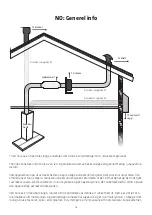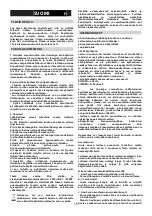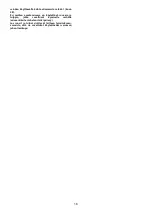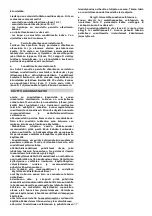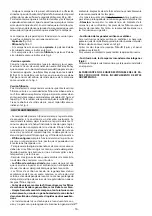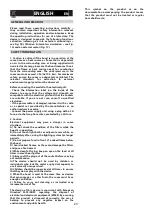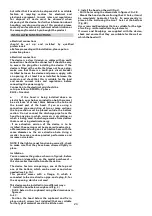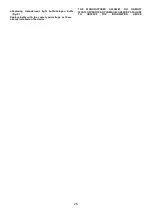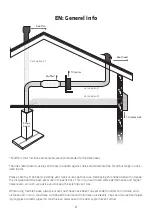
be tightened.
The hood will be set up ready for the version that you
ordered. The following versions are available:
-
With extraction (Fig. 1A-3)
-
With filter (Fig.1B-4-7)
-
If the hood has extraction, handle C
must be positioned as shown in Figure 3.
-
If the hood has a filter, handle C must be positioned as
shown in Figure 4.
o
Extraction version
With this type of installation, the device expels the
fumes outside through an outer wall or an existing
channel. A telescopic wall vent that meets current rules
and regulations (i.e. non-flammable), to be connected
to flange D (Fig. 1A), will need to be purchased to install
this version. Flange D comes with the product and
needs to be secured in place above the hood's
extraction opening, as shown in Figure 3.
o
Filter version
To convert a hood with extraction to a hood with a
filter, you will need to purchase an activated carbon
filter from your distributor. Install the filter on the
extraction element inside the hood by turning it 90
degrees until it clicks in place (Fig. 7). Grate D will need
to be removed to do this (Fig. 5). Close the extraction
opening with plug B, as shown in Figure 4.
USE AND MAINTENANCE
o
We recommend turning on the device before you
begin preparing food. We also recommend leaving it on
for 15 minutes afterwards so that all food odours are
extracted. The hood must be maintained correctly on a
regular basis if it is to function correctly. It is particularly
important to ensure that the grease filter and activated
carbon filter get replaced.
o
The grease filter has the job of retaining airborne
grease particles. As such, it gets clogged up over time,
depending on how often the hood is used.
-
To prevent fire, the grease filter should be washed by
hand at least once every two months using a neutral
(non-abrasive) liquid cleaning agent, or if not washed at
a low temperature in the dishwasher on a short
programme.
-
It may discolour after a few washes, but this will not
necessarily mean that it needs to be replaced.
o
The activated carbon filters purify the air that is re-
extracted in the surroundings, and help to neutralise
the bad odours that form while you are cooking.
-
The non-regenerating activated carbon filters must be
replaced at least once every four months. How
saturated the activated carbon becomes depends on
how long the hood is used for, what type of food is
prepared, and how regularly the grease filter is cleaned.
o
The grease filters and the regenerating activated
carbon filters must be completely dry before they are
re-installed.
o
The hood should be cleaned on a regular basis, both
inside and outside, with a cloth soaked in methylated
spirit or a neutral, non-abrasive cleaning agent.
o
The light is designed for use during the preparation of
food and is not intended to provide room lighting in
general. Longer periods of use will shorten the average
life of the lightbulbs considerably.
o
If the device has room lighting, this can be used to
provide lighting for the room over longer periods in
general.
o
Caution: Failure to replace or clean the filters will
increase the risk of fire. As such, we recommend
following the instructions.
o
Replacing acrylic or metal panels
To replace acrylic or metal panels, you must first remove
grate D ; do this by pressing the B side tabs inwards, as
shown in Figure 5.
Remove the 2 B filter holders (Fig. 6), then acrylic or
metal panel C. Reverse this sequence of instructions to
reinstall them.
25

